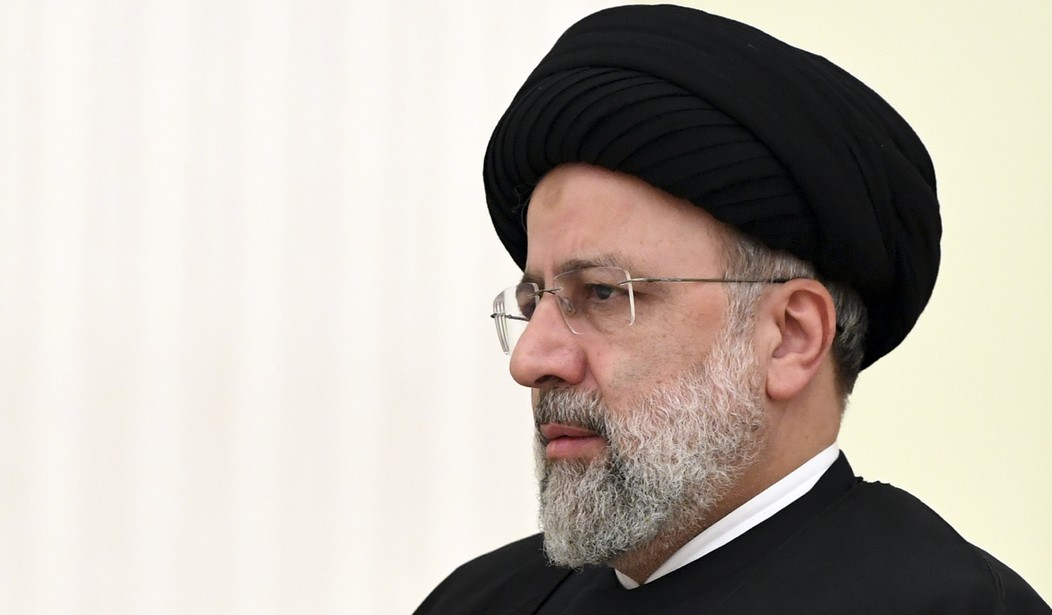The National Council of Resistance of Iran (NCRI) released a statement on Saturday condemning the imminent visit to Geneva by Iran’s President Ebrahim Raisi and announcing plans for a mass demonstration outside the 2023 Global Refugee Forum. The statement referred to Raisi’s participation in that forum as “a stain in the history of the UN” and “an insult to human rights, the sacred right to asylum, and all the values for which contemporary humanity has sacrificed tens of millions of lives.”
European lawmakers and foreign policy experts are expected to take part in that demonstration alongside Iranian expatriates, many of whom have lost loved ones or otherwise been directly impacted by Raisi’s role in crackdowns on dissent dating back to the early days of the Islamic Republic.
The sense of outrage over Raisi’s invitation to Geneva is amplified by the fact that the event in question was organized by the UN High Commission for Refugees at the same time as the UN Human Rights Council is still investigating the crackdown that was sparked by a nationwide anti-government uprising in Iran last year. Human rights experts continue to condemn an ongoing surge of executions while acknowledging that it is certainly motivated by the regime’s desire to terrorize the public and discourage further public expressions of dissent.
More than 700 Iranian prisoners have been executed since the beginning of the year, with at least 215 executions having been carried out just since the October 7 start of the war between Israel and Hamas. But these successive surges are also part of a preexisting phenomenon, which has no doubt been driven by Raisi’s ascension first to the head of the judiciary and then to the presidency. Indeed, the NCRI responded to each of those developments by warning that they were signs of an escalating commitment to the violent repression of dissent.
Recommended
This conclusion stems from the fact that Raisi has long been recognized as one of the Iranian regime’s most enthusiastic advocates for corporal and capital punishment. This reputation, in turn, is based upon the fact that in 1988, when he was serving as deputy public prosecutor for Tehran, Raisi became one of the foremost perpetrators of a massacre of political prisoners which is believed to have claimed upwards of 30,000 lives.
The massacre was motivated by a fatwa from the regime’s founder and first supreme leader, Ruhollah Khomeini, when he issued a fatwa labeling organized opposition to the theocratic system as proof of “enmity against God,” a capital offense. In subsequent communications, Khomeini ordered his subordinates to “annihilate the enemies of Islam immediately,” applying that label in particular to the largely Muslim, but pro-democracy, members of the People’s Mojahedin Organization of Iran (PMOI).
The PMOI, or MEK, was the main source of opposition to the clerical regime at the time, and thus the main target of the 1988 massacre. Its members reportedly comprised around 90 percent of the 30,000 victims, yet the organization survived the regime’s attempts to annihilate it, and went on to become the main constituent of the NCRI coalition. Its network of “Resistance Units” claimed responsibility for the rapid growth of protests which made up last year’s uprising, as well as the one in 2019, and another in late 2017 and early 2018.
These successive uprisings represent a trend in anti-government activism which threatens the very existence of the theocratic dictatorship, and this fact makes it all the more troubling that the international community continues to ascribe legitimacy to Raisi and his regime by welcoming them into diplomatic forums.
To the extent that Raisi’s invitation to Geneva constitutes a betrayal of human rights principles, it also reinforces an expectation of impunity among Iranian authorities. This notion was emphasized in Saturday’s statement and also in a speech last year by NCRI leader Maryam Rajavi, in which she declared that “the impunity of [Supreme Leader] Khamenei and other regime officials must end,” before calling upon the Human Rights Council and the UN Security Council to immediately pursue legal charges against those who participated in the 1988 massacre.
There are well-founded concerns that in absence of those charges, Tehran will be emboldened in its crackdowns on dissent, perhaps not just within its own territory but also in any place within reach of its terrorist operatives.
In June 2018, an Iranian diplomat named Assadollah Assadi spearheaded plans to set off explosives at an NCRI-organized gathering outside of Paris, risking the lives of dozens of Western lawmakers who were in attendance alongside tens of thousands of Iranian expatriates. Early this year, Assadi was released in exchange for a Belgian aid worker whom the regime had taken hostage, and since then, Iranian terrorist threats have continued to proliferate.
In light of these trends, Raisi’s visit to Europe arguably represents not only a betrayal of human rights principles but also a security threat. Taken together, these facts ought to make it abundantly clear that the only reason why he or any other high-ranking Iranian official should be permitted to set foot in Europe is in order to face arrest and prosecution for terrorism and crimes against humanity.

























Join the conversation as a VIP Member